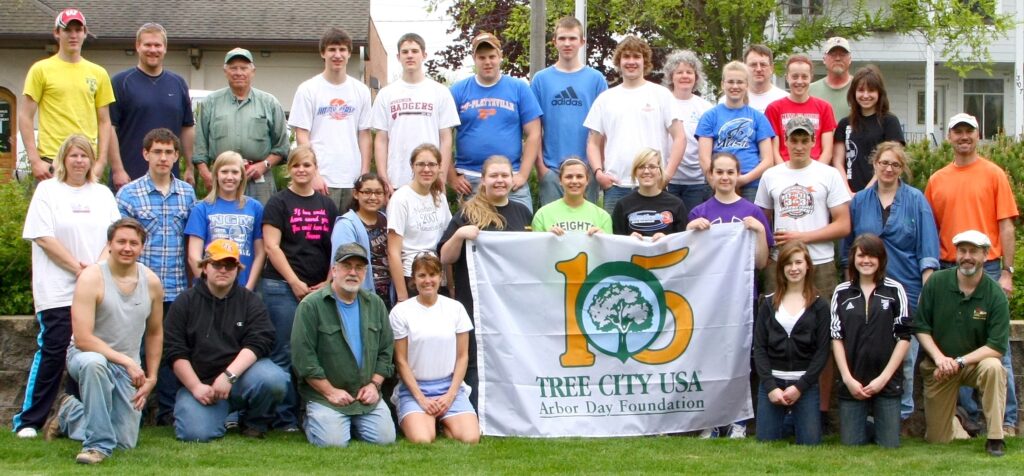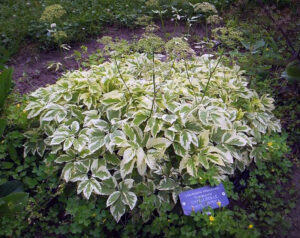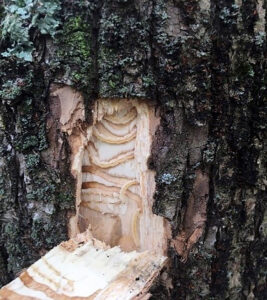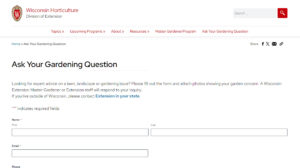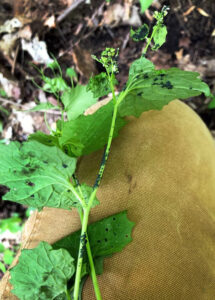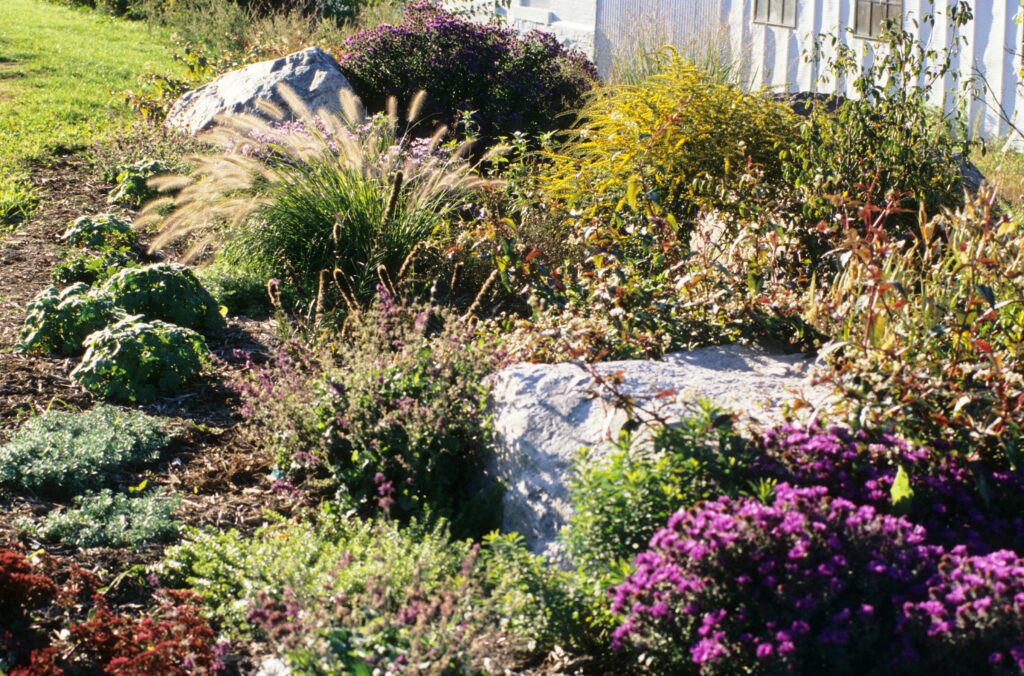By Linda Williams, DNR forest health specialist, Woodruff;
Linda.Williams@wisconsin.gov or 920-360-0665
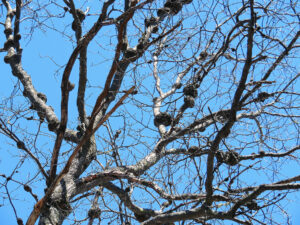
It is often easier to spot large Phomopsis galls before leaves come out in the spring.
Phomopsis galls are large woody swellings on the branches or main stem caused by a fungus. Across Wisconsin, Phomopsis galls can grow on hickory, especially bitternut hickory. However, in some areas of Wisconsin, they can occur on northern red oak.
Northern red oaks sometimes have hundreds of Phomopsis galls on the branches, ranging from as small as a tennis ball to as large as a basketball. Continue reading “Phomopsis Galls Found On Northern Red Oak”

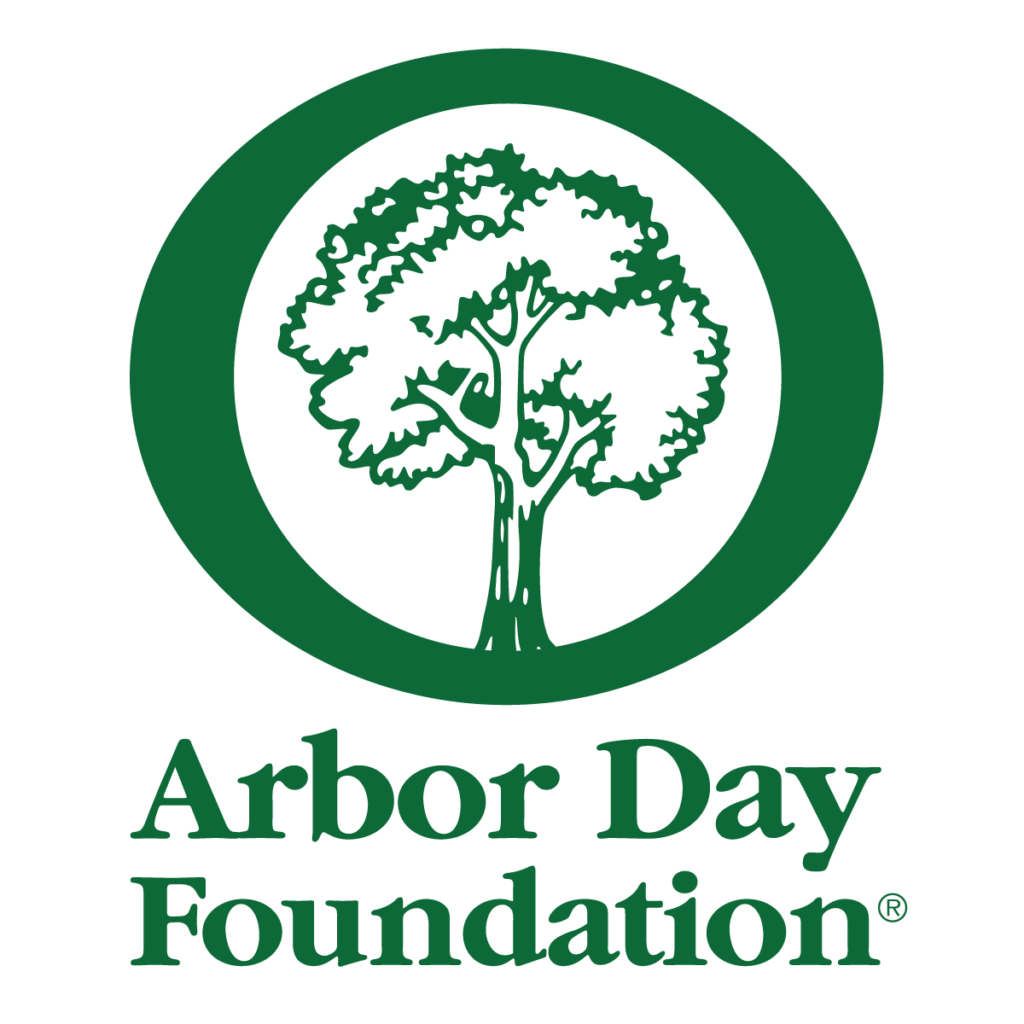 For the last few years, our urban forestry team has been writing social media posts for Wisconsin communities to post during Arbor Week. We encourage you to use social media to celebrate the many benefits of trees and inform the public about the importance of tree care.
For the last few years, our urban forestry team has been writing social media posts for Wisconsin communities to post during Arbor Week. We encourage you to use social media to celebrate the many benefits of trees and inform the public about the importance of tree care.